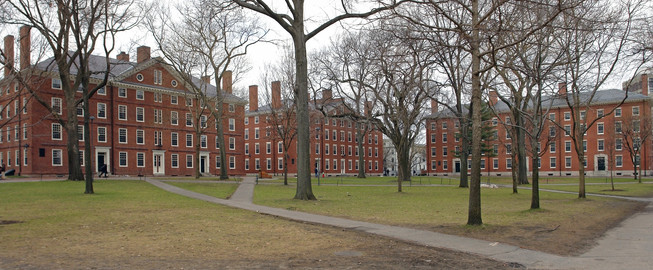Harvard Revokes Ten Class of 2021 Offers for Offensive Online Behavior
Students who aspire to attend Ivy League or other elite colleges should consider the impact of all postings to social media sites. It’s equally important to extend this discipline even after admission, as a number of accepted members of Harvard’s Class of 2021 recently learned. According to the Harvard Crimson (June 4), “Harvard College rescinded admissions offers to at least ten prospective members of the Class of 2021 after the students traded sexually explicit memes and messages that sometimes targeted minority groups in a private Facebook group chat.”
If this doesn’t get your attention… nothing will! Imagine the predicament of these ambitious students, having declined the offers of admission from other top-tier institutions that they undoubtedly received earlier this year.
Let’s clarify the meaning of the term meme in the context of Internet usage. Generally speaking, a meme is an idea, behavior, style, or usage that spreads from person to person through cultural media, e.g., Uncle Sam in the famous recruiting poster by James Montgomery Flagg. On the Internet, a meme refers to a text, picture, video, or graphic, usually intended to be humorous, which spreads virally throughout a large online subculture such as people of high school and college age. Prime examples include Gangnam Style, Numa Numa Dance, and Epic Fail.
The meme-fest in question began when about 100 members of the incoming freshman class contacted each other through Harvard’s Class of 2021 Facebook group. They formed a new messaging group where students could share memes about popular culture, a growing trend among students at elite colleges. In this case, the messaging site was intended for what was referred to as “R-rated” posts. The founders of the messaging group required that students post provocative memes in the official group chat in order to gain access to their new group.
The students in the new group exchanged tasteless memes in what was apparently an attempt to out-do each other. Soon, however, university officials caught on. According to The Washington Post (June 5), “In mid-April, after administrators discovered the offensive, racially charged meme exchanges, at least 10 incoming students who participated in the chat received letters informing them that their offers of admission had been revoked.”
According to the Harvard admission policies, the university reserves the right to withdraw an offer of admission if a student, “… engages or has engaged in behavior that brings into question their honesty, maturity or moral character”. This policy is also stated on the Facebook site for the Class of 2021. Similar statements are included in the admissions policies of other elite colleges and universities.
In the 2017 admissions season, 2,056 students were admitted to Harvard’s incoming freshman class from among 39,506 total applicants, a 5.2% admissions rate. Of the admitted students, 84% chose to enroll at Harvard, the highest rate at Harvard in decades.
The university’s decision to rescind the ten acceptances focuses attention on the dangers of social media for prospective college students. Kaplan Test Prep conducted a survey of the admissions offices of 350 colleges. They found that 35% of them conduct Google searches and check popular social media sites like Facebook, Twitter, and Instagram to learn more about applicants. Admissions officials reported that about 42% of these checks resulted in a negative impact on prospective students that could cause the disqualification of an applicant.
Reaction to the Harvard decision has varied among elite college students, alumni, administrators, and other interested parties. This is to be expected given the current tension over free speech that prevails at American colleges. Many people felt the decision was justified. Others expressed a belief that Harvard crossed a line by unfairly judging students based on their private communications. Within the latter group are those who feel that applicants and admitted freshmen are under enough pressure without feeling that an oppressive Big Brother is monitoring them. Of course, private institutions are free to include one’s social media behavior as an admissions criterion if they so choose, fairness notwithstanding.
In any case, it’s best that you avoid that battle entirely if you seek to attend Harvard or any other top-tier institution. Remember too that a school can invoke their “morals clause” at any time while you’re matriculating as a reason to expel you. When in doubt… don’t post it!
At IvySelect, we advise you in avoiding the pitfalls of Internet use. More importantly, we guide you in using popular social media sites to your advantage. IvySelect’s college admissions counselors have the expertise to assist you in identifying and developing the special talents, or “hooks”, that will set you above your competitors. We help you to hone your marketing message so that you’ll draw added attention to your hooks through your presence on LinkedIn, Facebook, Twitter, and Instagram. Through these sites, you’ll present a positive image consistent with the profile that you’re presenting in all other components of your college applications.





